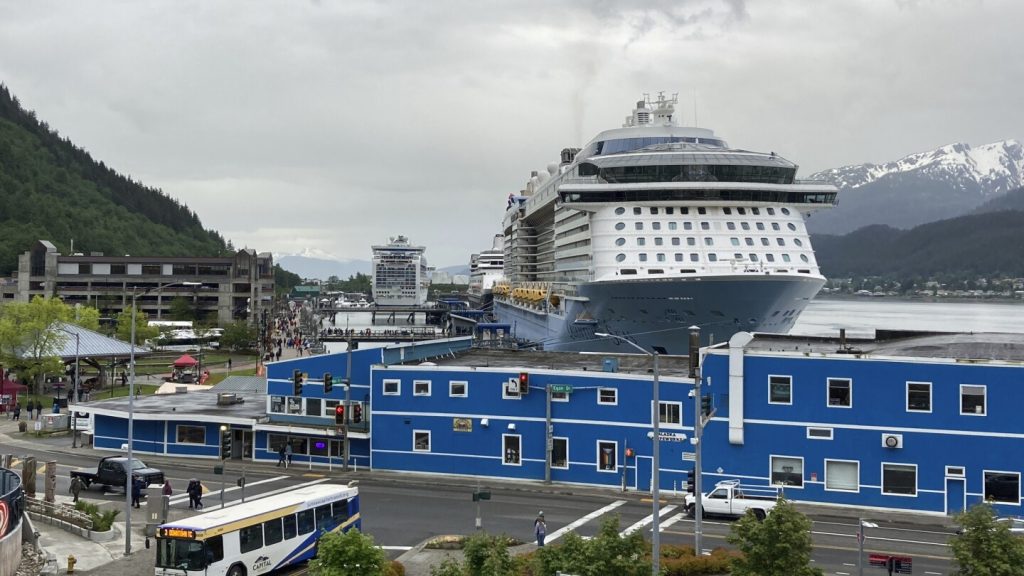The recent agreement between Alaska’s capital city, Juneau, and major cruise lines aims to cap the daily number of cruise ship passengers arriving in the city starting in 2026. The agreement sets a daily limit of 16,000 cruise passengers Sundays through Fridays and 12,000 on Saturdays. This comes after a record-breaking year with over 1.6 million cruise passengers in Juneau, causing tension between businesses reliant on tourism and residents unhappy with the increased traffic and noise. The agreement also includes a limit of five large ships per day that took effect this current season.
Cruise seasons in Juneau have been extending, with ships arriving as early as April and as late as October. On peak days, the number of passengers has been close to two-thirds of Juneau’s population of approximately 32,000 people. The aim of the new agreement is to maintain cruise passenger numbers at around 1.6 million while allowing time to develop infrastructure to support sustainable tourism. Projects planned for the next five years include a gondola at a ski area, updates to the sea walk in downtown, and increased visitor capacity at the Mendenhall Glacier Recreation Area.
The agreement also calls for yearly meetings to review operations and align on community and industry parameters. However, some residents, like critic Karla Hart, feel that the agreement does not do enough to address concerns about the sustainability of current tourism levels. Hart is pushing for a local ballot initiative that would ban cruise ships with at least 250 passengers from stopping in Juneau on Saturdays or July 4. Cruise Lines International Association Alaska’s Renée Limoge Reeve emphasized the industry’s commitment to collaboration and partnership with communities like Juneau.
The cruise industry in Alaska has faced ongoing debates over tourism numbers, with smaller communities like Sitka also grappling with similar issues. The new agreement between Juneau and cruise lines is seen as a step towards addressing the impacts of tourism while maintaining economic benefits. City leaders, cruise line executives, and industry representatives are working together to find a balance that meets the needs of residents, the economy, and future opportunities while ensuring sustainable tourism practices. The agreement reflects a commitment to collaboration and dialogue between stakeholders to address the challenges of managing cruise ship tourism in Alaska.
Overall, the agreement between Juneau and major cruise lines marks a significant step towards managing and regulating cruise ship tourism in the city. While critics like Karla Hart believe more needs to be done to address sustainability concerns, the agreement sets a framework for ongoing dialogue and collaboration to ensure a balance between economic benefits and environmental impacts. As cruise seasons continue to expand and passenger numbers increase, finding a sustainable model for tourism in Juneau will be crucial in maintaining the city’s appeal as a popular cruise destination. The upcoming years will be pivotal in implementing infrastructure improvements and community engagement initiatives to support a more sustainable future for tourism in Juneau.


